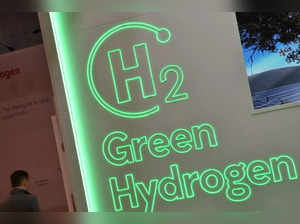Replacing grey hydrogen with green at refineries will have a negligible effect on consumer fuel prices and a mandate for a calibrated switch could be a viable policy option for promoting clean energy in the country, says a study by a World Bank group arm.
The study, conducted by ICF and presented to the Petroleum and Natural Gas Regulatory Board (PNGRB), examines a range of green hydrogen mandates, from 5% to 100%.
"Our findings reveal a surprisingly negligible effect on the final prices of petroleum products, even for a 50% green hydrogen blending mandate," the report said.
A 10% green hydrogen mandate will push up the cost of petroleum products by just 0.5% and a 50% mandate will increase costs by 2.5%, according to the study. For this calculation, the study assumed prices of natural gas at $12/mmbtu, green hydrogen at ₹380 per kg and crude at $80 per barrel.
The government has debated but not yet imposed a 25% green hydrogen mandate by 2030 due to refiners' resistance who argue that the mandate would turn redundant their recent investments in grey hydrogen production facilities and push up consumer costs. Refineries, which mainly use hydrogen to remove sulphur from fuel, are the biggest domestic consumers of hydrogen, followed by fertilizer producers.
The ICF study expects the domestic hydrogen demand to increase to 8 million tonnes per annum (MTPA) by 2030 from the current 6.7 MTPA. Green hydrogen currently costs 80% more than grey hydrogen but will achieve cost parity with grey hydrogen by 2035, assuming no financial support from the government or carbon pricing, the study said. NITI Aayog expects cost parity by 2029.
The price of regasified liquefied natural gas (RLNG) will increase by 3.66% from $15.02 per mmbtu to $15.57 if mandates are enforced to blend green hydrogen into natural gas, the study said.
Blending up to 2% in natural gas pipelines is achievable with minimal adjustments while blending up to 10% is technically possible but needs case-specific analysis, according to the study. More than 10% blending "presents a significant challenge, requiring substantial system changes", the report said. "Developing pure hydrogen pipelines and supporting infrastructure may be more cost-effective than implementing more than 10% blending," it said.
India aims to progressively blend up to 15% green hydrogen in the city gas distribution system by 2030.
The study, conducted by ICF and presented to the Petroleum and Natural Gas Regulatory Board (PNGRB), examines a range of green hydrogen mandates, from 5% to 100%.
"Our findings reveal a surprisingly negligible effect on the final prices of petroleum products, even for a 50% green hydrogen blending mandate," the report said.
A 10% green hydrogen mandate will push up the cost of petroleum products by just 0.5% and a 50% mandate will increase costs by 2.5%, according to the study. For this calculation, the study assumed prices of natural gas at $12/mmbtu, green hydrogen at ₹380 per kg and crude at $80 per barrel.
The government has debated but not yet imposed a 25% green hydrogen mandate by 2030 due to refiners' resistance who argue that the mandate would turn redundant their recent investments in grey hydrogen production facilities and push up consumer costs. Refineries, which mainly use hydrogen to remove sulphur from fuel, are the biggest domestic consumers of hydrogen, followed by fertilizer producers.
The ICF study expects the domestic hydrogen demand to increase to 8 million tonnes per annum (MTPA) by 2030 from the current 6.7 MTPA. Green hydrogen currently costs 80% more than grey hydrogen but will achieve cost parity with grey hydrogen by 2035, assuming no financial support from the government or carbon pricing, the study said. NITI Aayog expects cost parity by 2029.
The price of regasified liquefied natural gas (RLNG) will increase by 3.66% from $15.02 per mmbtu to $15.57 if mandates are enforced to blend green hydrogen into natural gas, the study said.
Blending up to 2% in natural gas pipelines is achievable with minimal adjustments while blending up to 10% is technically possible but needs case-specific analysis, according to the study. More than 10% blending "presents a significant challenge, requiring substantial system changes", the report said. "Developing pure hydrogen pipelines and supporting infrastructure may be more cost-effective than implementing more than 10% blending," it said.
India aims to progressively blend up to 15% green hydrogen in the city gas distribution system by 2030.








